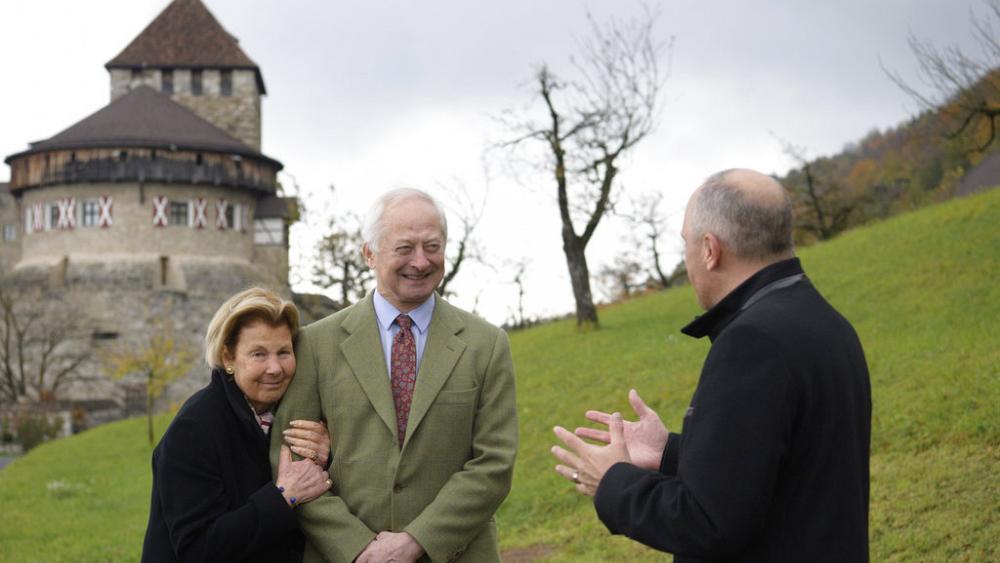
Europe’s most powerful monarch still lives in a towering hilltop castle and has the power to dissolve parliament and veto legislation. He is referred to as His Serene Highness.
Decades, or indeed centuries, after Europe’s kings and queens were forced to relinquish their political power to national parliaments, Liechtenstein’s Prince Hans-Adam II and his son, Crown Prince Alois have only seen their grip on the tiny Alpine nation tighten.
And the people of Liechtenstein, for the most part at least, seem to love them for it.
In 2003, after a series of disputes between Prince Hans-Adam II and Liechtenstein’s parliament, a referendum was held – not on whether to reduce his power over parliamentary politics, but to increase it. Liechtenstein’s 40,000 people voted overwhelmingly in favour.
Then in 2012, after the prince, a staunch Catholic, threatened to veto a law that would have legalised abortion, pro-democracy campaigners organised a referendum that would have reduced the monarchy’s power. Over 75% of Liechtenstein’s citizens voted against it.
It didn’t hurt that the prince threatened to leave the country if the vote went against him.
So as the country goes to the polls on Sunday, it goes without saying that the monarchy – Europe’s last, at least in terms of political power – will not be an electoral issue. Even the tiny ‘Free List’ grouping, which was originally republican, no longer speaks out against the prince.
“The form of government enjoys great support in Liechtenstein and has hardly been politicised in recent years,” said Christian Frommelt, director and head of research politics at the Liechtenstein Institute.
Populists
Two parties have ruled Liechtenstein, which borders Switzerland and Austria, since World War Two: the Progress Citizens Party (FBP) and the Patriotic Union (VU), known as ‘the blacks’ and ‘the reds’. The Free List, which rarely gets more than 15% of the vote, is known as ‘the whites’.
Liechtenstein’s right-wing populists the Independents (known as the DU) increased their vote share in 2013 and 2017, but the country’s election on Monday will – as it has always been – be a two-horse race, with only marginal differences, policy-wise, between the horses.
Liechtenstein, a mountainous and largely rural country, was neutral during World War Two but emerged from the conflict with little in the way of industry.
Over the next few decades, it rebranded itself as a finance centre, luring companies with rock-bottom corporate tax rates while its banking secrecy laws made it a popular destination for wealthy individuals to avoid taxes – and criminals looking for a place to launder their money.
The latter – and to a certain extent the former, too – landed the tiny country on a blacklist of tax havens drawn up by the European Union. It was a decade before it enacted sufficient regulations to get it removed from the list in 2018.
That hasn’t done much to hit the people of Liechtenstein in the pocket: In 2018, per capita income in the principality was 150,000 euros, the highest in the world, even beating Luxembourg and Qatar. Prince Hans-Adam II himself is worth 3.6 billion euros.
Like Switzerland, with which it shares a currency and a language, Liechtenstein is not a member of the European Union, but it is a member of the European Economic Area, which regulates issues such as energy and financial services but not immigration, over which it retains control.
As elsewhere in Europe, immigration is an issue that does get voters’ juices flowing, despite the fact that Liechtenstein has an exceedingly restrictive policy on foreign labour, often not even permitting workers who take jobs with local companies to live in the principality.
It is still the issue where the DU has found the most support, although, in the four years since the party won its largest vote share (18%), the populists have had an internal quarrel and split in two.
That has ensured that it will be a struggle for the DU to reach the 8% threshold required to take seats in parliament. Its other half, the Democrats pro Liechtenstein (DpL), is expected to do far better, says Frommelt, perhaps winning as much as 20% of the vote.
But right-wing populism in Liechtenstein is not the same as in Switzerland or Austria, he says, and while the DpL and DU are critical about migration and European integration, those issues do not dominate their manifestos. DpL and DU voters could, however, have been influenced by populist politics by parties in neighbouring countries, he added.
“Populism in Liechtenstein is therefore mainly imported and then cultivated through letters to the editor or in the social media. In parliament itself and also in the election programmes, one finds rather little populist rhetoric,” he said.
The FBP have held a majority in parliament in Liechtenstein for the last eight years, and so it may be that voters opt for the VU in order to change things up, although both parties are broadly the same: pro-business, sound fiscal policy, pro-family and environmentalist.
The only difference this time around is that the FBP have a female candidate for prime minister, which would mark the first time in history that a woman has held that role in Liechtenstein.
A significant milestone for any European nation, but particularly one where the monarchial line of succession is only passed on to sons and where women didn’t get the vote until 1984.
Related posts:
Views: 0
 RSS Feed
RSS Feed

















 February 8th, 2021
February 8th, 2021  Awake Goy
Awake Goy  Posted in
Posted in  Tags:
Tags: 
















